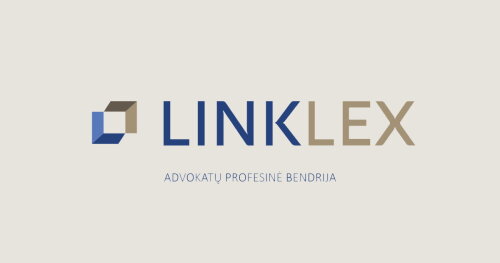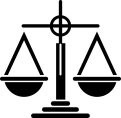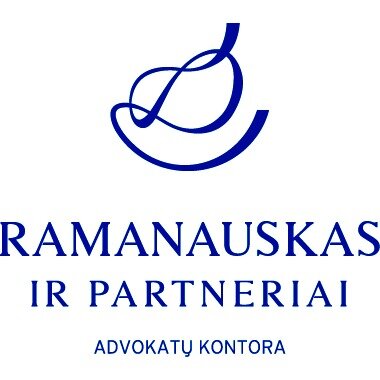Best Government Relations & Lobbying Lawyers in Republic of Lithuania
Share your needs with us, get contacted by law firms.
Free. Takes 2 min.
Or refine your search by selecting a city:
List of the best lawyers in Republic of Lithuania
About Government Relations & Lobbying Law in Republic of Lithuania
Government relations and lobbying in the Republic of Lithuania are governed by specific regulations designed to foster transparency, integrity, and accountability in interactions between private interests and public decision-makers. These practices allow businesses, NGOs, and other entities to communicate their interests to the government, potentially influencing legislation, regulations, and policy directions. As Lithuania continues to expand its role within the European Union, understanding and navigating the nuances of government relations is increasingly essential for success in the public affairs sector.
Why You May Need a Lawyer
Engaging in government relations and lobbying can be a complex undertaking, necessitating a clear understanding of legal requirements and ethical standards. You may require legal assistance if you are:
- Planning to engage in lobbying activities and need guidance on regulatory compliance.
- A business or NGO seeking to influence legislation or public policy.
- Facing inquiries or investigations regarding your lobbying activities.
- Involved in contract negotiations with government entities.
- Seeking to understand how changes in legislation may impact your operations.
Local Laws Overview
In Lithuania, the legal framework for government relations and lobbying is primarily set by the Law on Lobbying Activities, which establishes the mechanisms for transparency and accountability. Key aspects of the local laws include:
- Mandatory registration as a lobbyist for those engaging in lobbying activities.
- Requirements for public disclosure of lobbying activities and expenditures.
- Regulations governing the conduct and ethics of lobbyists.
- Clear definitions of lobbying to differentiate it from other forms of influence such as public relations.
- Enforcement mechanisms and sanctions for non-compliance with lobbying laws.
Frequently Asked Questions
What is considered lobbying in Lithuania?
Lobbying in Lithuania involves attempting to influence public officials regarding legislation, government policies, or public contracts through direct or indirect communication.
Who needs to register as a lobbyist?
Individuals or entities who engage in lobbying activities on behalf of their own interests or those of clients are required to register in the official Lobbying Register.
What are the penalties for not registering as a lobbyist?
Failure to register or provide accurate disclosures can result in fines, suspension of lobbying activities, and damage to reputation and credibility.
Are there specific reporting requirements for lobbyists?
Yes, lobbyists must regularly report their activities, including the entities they represent, the issues lobbied on, and any financial expenditures related to lobbying.
Can foreign entities engage in lobbying in Lithuania?
Foreign entities can engage in lobbying, but they must comply with the same registration and disclosure requirements as domestic entities.
What ethical standards must lobbyists abide by?
Lobbyists must adhere to ethical standards including integrity, transparency, accountability, and respect for public interest and law.
Is there a cooling-off period for former public officials before they can lobby?
Yes, Lithuania imposes a cooling-off period during which former public officials are prohibited from engaging in lobbying activities related to their former functions.
How can I find a qualified government relations lawyer in Lithuania?
Seek recommendations, check professional directories, and verify credentials and specialization in public law and lobbying to find a qualified lawyer.
What role do lobbying associations play in Lithuania?
Lobbying associations provide guidance, set industry standards, support ethical practice, and may offer professional development resources for lobbyists.
How does lobbying differ from corruption in Lithuania?
Lobbying is a legally recognized means of advocacy with transparency, while corruption involves unlawful and unethical means to coerce decision-making.
Additional Resources
For more information and resources on government relations and lobbying in Lithuania, consider reaching out to:
- Transparency International Lithuania: Offers resources on anti-corruption measures and lobbying regulations.
- Lobbying Register: Official source for registration and information on lobbying activities.
- Ministry of Justice of Lithuania: Provides legal texts, amendments, and updates on legislation.
- Law Firms Specializing in Public Law: Institutions that offer tailored legal advice on lobbying and government relations.
Next Steps
Should you need legal assistance in government relations and lobbying in Lithuania, consider the following actions:
- Identify your specific needs and prepare any relevant documents or information.
- Consult professional directories to find experienced lawyers specializing in public law and lobbying.
- Reach out to potential legal representatives for consultations to gauge their expertise and compatibility with your needs.
- Prepare a list of questions to discuss during your consultation to ensure comprehensive understanding and representation.
- Review legal costs and agreements carefully before proceeding with legal services.
Lawzana helps you find the best lawyers and law firms in Republic of Lithuania through a curated and pre-screened list of qualified legal professionals. Our platform offers rankings and detailed profiles of attorneys and law firms, allowing you to compare based on practice areas, including Government Relations & Lobbying, experience, and client feedback.
Each profile includes a description of the firm's areas of practice, client reviews, team members and partners, year of establishment, spoken languages, office locations, contact information, social media presence, and any published articles or resources. Most firms on our platform speak English and are experienced in both local and international legal matters.
Get a quote from top-rated law firms in Republic of Lithuania — quickly, securely, and without unnecessary hassle.
Disclaimer:
The information provided on this page is for general informational purposes only and does not constitute legal advice. While we strive to ensure the accuracy and relevance of the content, legal information may change over time, and interpretations of the law can vary. You should always consult with a qualified legal professional for advice specific to your situation.
We disclaim all liability for actions taken or not taken based on the content of this page. If you believe any information is incorrect or outdated, please contact us, and we will review and update it where appropriate.
Browse government relations & lobbying law firms by city in Republic of Lithuania
Refine your search by selecting a city.














